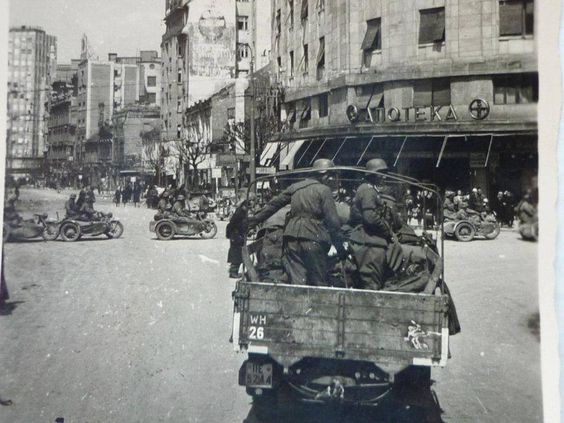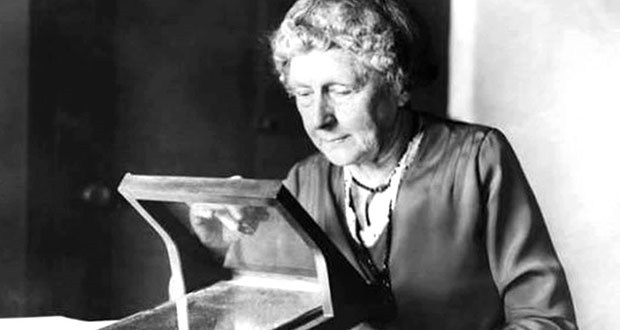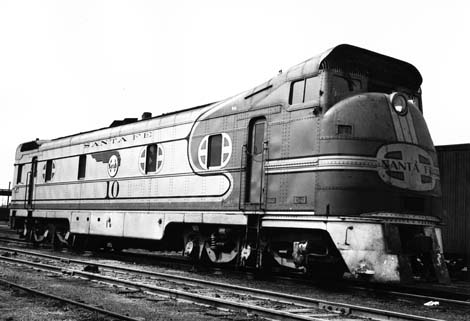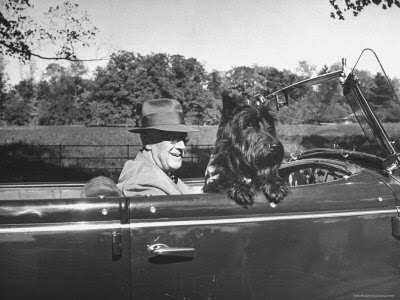Sunday 13 April 1941
 |
| Soviet premier Joseph Stalin presides over the signing of the Soviet-Japanese Neutrality Pact, 13 April 1941. |
General Henry Maitland Wilson in Athens (actually he usually is in Piraeus) orders all Allied forces to abandon the Aliakmon Line before they are cut off by the XL Panzer Corps heading south from western Yugoslavia. He sends them past Mount Olympus and to a new area further south where the terrain favors the defense. The new defensive line beginning at Molos on the Gulf of Euboea, run through the pass at Thermopylae, and end on the Gulf of Corinth. The main question is whether the British and their allies can get to this 50-mile line ahead of the Germans and garrison it sufficiently to halt the Wehrmacht's panzers.
The Germans in Thessaloniki watch the British go from across the Aliakmon River, not wishing to rush them and biding their time before they cross the river. While the British are retreating, they retain strong rear guards just west of the river.
The main action continues to rest with the 1st SS Panzer Division Leibstandarte SS Adolf Hitler (LSSAH), which at this stage of the war is still of brigade size (about 6,000 men). After having taken the Klidi Pass and advanced well into the Kleisoura Pass, the LSSAH is pursuing a beaten enemy. The Mackay Force of Australians, New Zealanders, British and Greeks is in disarray, with units spread to the four winds and heading south by whatever roads they can find that have not yet been blocked by the fast motorcycle troops of "Panzer" Meyer's LSSAH reconnaissance force.
 |
| Members of the Australian 2/1st Anti-Tank Regiment on or about 13 April 1941, after retreating from the Vevi area through the Klidi Pass (Weapons and Warfare). |
This British tank action is intended to cover the retreat of the Greek 12th Division through snowstorms over Mount Vermion, but the Germans are moving fast to cut off as much of that division as they can. They manage to split the 12th roughly in half, and by nightfall, the Germans are in contact with the next Allied line at Kleisoura with much of the Greek part of the Allied Army cut off or useless.
The powerful Greek forces in Albania accelerate their withdrawal south. In retrospect, one can say that they took to long to begin moving, but nobody expected the Yugoslav and British defenses to crack so easily. In addition, the Greek forces have been pinning down large Italian formations which now can join the German advance, so the withdrawal has its drawbacks as well as its benefits.
The Luftwaffe attacks the port of Volos with 70 bombs, causing massive destruction to the harbor facilities. Among the damage is a hit on 7140-ton British freighter City of Karachi. There are no casualties. The City of Karachi is towed to a nearby bay and beached, where it makes a tempting target for further attacks. Another ship, 4968-ton Norwegian freighter Brattdal, also is damaged and disabled. There is one death on the Brattdal.
The port of Piraeus is back in action after the violent Luftwaffe attacks on the first days of the invasion. Convoys GA 12 and ASF 25 depart for Alexandria. However, the Luftwaffe is still focusing on Piraeus and the nearby seas - the German consulate overlooks the harbor and they know how important it is - and today they bomb and damage Greek destroyer Basileus Georgios I in the Saronikos Gulf. The destroyer makes it to Salamis.
The Luftwaffe also bombs and sinks Greek destroyer Psara in the Gulf of Athens.
German radio mentions General von Kleist, whose 2nd Army forces took Belgrade, in the nightly Wehrmachtbericht communique. This is an honor even for a senior general and shows that he is in good favor with the German hierarchy.
 |
| Greek officers in Ioannina, 13 April 1941 (WW2 Militaria). |
East African Campaign: The South African 1st Infantry Brigade advances north from Addis Ababa toward Dessie, while the East African 22nd Infantry Brigade advances south from Addis Ababa. Meanwhile, the Indian 29th Infantry Brigade advances south toward Amba Alagi. The Italians under the Duke of Aosta have bottled themselves up in mountain fortress, and while the British control the main cities, the Italians remain an oppressive presence.
Battle of the Atlantic: U-108 (K.Kapt. Klaus Scholtz), on its second patrol out of Lorient, torpedoes and sinks 16,444-ton armed merchant cruiser HMS Rajputana in the Denmark Strait west of Reykjavik, Iceland. The ship sinks in about an hour. There are 42 deaths, including the Commodore of Convoy HX 117 (which it recently had left), while about 280 men are saved by destroyer HMS Legion. All else aside, the loss is serious to the Royal Navy because it depends on these AMCs to free up its cruisers and capital ships for other, less mundane, tasks. The Rajputana thus joins her sister ship HMS Rawalpindi on the bottom.
U-124 (Kptlt. Georg-Whilhelm Schulz) continues its highly successful fourth patrol north of the Cape Verde Islands by sinking another ship. This one is 4823-ton British freighter Corinthic. Kptlt. Shulz's first torpedo fails to explode - a fairly common occurrence in northern waters - but the second explodes.
The Luftwaffe bombs and damages 6591-ton British freighter Baron Belhaven at the mouth of the Bristol Channel off Milford Haven. The ship is towed to that port. There are four deaths.
OB 310 departs from Liverpool.
 |
| SS-Hauptsturmführer Fritz Klingenberg, a company commander in the Das Reich Division’s reconnaissance battalion responsible for the timely and peaceful capture of Belgrade on 12/13 April 1941. |
The First Siege of Tobruk is underway. The Italians finally give Afrika Korps commander Lieutenant General Erwin Rommel blueprints of the port fortress' defenses so that he can plan his attacks better.
The Australian 9th Division (General Morshead) remains trapped in Tobruk, and no relief is in sight. The Germans, astounded by their quick advance, become confident and attempt to seize as much of Egypt as they can before the British and Australian troops return from Greece. Rommel orders Forward Detachment Knabe to take Sollum and then advance toward Marsa Matruh. The Ariete Division advances to El Adem while Knabe occupies Fort Capuzzo. The next British blocking position is at Sollum as the Germans basically roll up the British gains of Operation Compass.
The Australians bottled up in Tobruk have something to say about all this, however. They repulse an attack on a key road junction south of Tobruk. After dark, the Germans infiltrate through the Tobruk wire defense, but a fierce local counterattack kills a dozen Germans and sends the rest fleeing. Basically, the Australians let the Germans know that they are going to fight it out in the port city. Without taking Tobruk, Rommel's advance cannot hope to advance far into Egypt.
The RAF bombs Tripoli Harbor, bombing and destroying medium-sized Italian tanker Santa Giulia. There is one death.
The Luftwaffe raids Tobruk Harbor and damages anti-submarine whaler Skudd IV just outside the port. The whaler makes it back into Tobruk in tow.
The Luftwaffe bombs Malta just after midnight on the 14th. The bulk of the destruction takes place at Mdina and nearby areas, but Luqa and some areas along the coast also are hit. It is a "lucky" raid for the British because many of the bombs narrowly miss causing much worse damage. For instance, bombs hit a large shelter protecting a hundred people, cut all escape unharmed.
Malta is facing another, more insidious problem than daily bombing raids. The constant action is wearing out the antiaircraft guns that are the main source of protection. In addition, there are not enough anti-aircraft soldiers, so many guns are manned by "amateurs" or they won't be operated at all.
Royal Navy aircraft carrier HMS Eagle completes its transit of the Suez Canal and re-embarks its two Swordfish squadrons that had been flying out of Port Sudan.
 |
| German soldiers enter Belgrade, April 13th 1941. |
President Roosevelt takes notice of this development and orders less focus to be placed on the Atlantic. It is clear to everyone that Japan would only desire this Pact if it were focusing its military ambitions to the south.
Vatican: Pope Piux XII broadcasts an Easter appeal calling for an end to terror attacks against population centers. He also obliquely asks the Germans to follow the Golden Rule, saying:
let your conscience guide you in dealing justly, humanely and providently with the peoples of occupied territories. Do not impose upon them burdens which you in similar circumstances have felt or would feel to be unjust.Hitler is no fan of the Pope but does recognize that deposing or harming him would be politically disadvantageous.
 |
| Annie Jump Cannon. |
Future History: Michael Stuart Brown is born in Brooklyn New York. He will become a top geneticist and win the Nobel Prize in Physiology or Medicine with Joseph L. Goldstein in 1985 for describing the regulation of cholesterol metabolism.
 |
| A locomotive of the Santa Fe Railroad at Topeka, 13 April 1941 (Ray Hilner via The Santa Fe Railway Historical and Modeling Society). |
April 1941
April 1, 1941: Rommel Takes Brega
April 2, 1941:Rommel Takes Agedabia
April 3, 1941: Convoy SC-26 Destruction
April 4, 1941: Rommel Takes Benghazi
April 5, 1941: Rommel Rolling
April 6, 1941: Operation Marita
April 7, 1941: Rommel Takes Derna
April 8, 1941: Yugoslavia Crumbling
April 9, 1941: Thessaloniki Falls
April 10, 1941: USS Niblack Attacks
April 11, 1941: Good Friday Raid
April 12, 1941: Belgrade and Bardia Fall
April 13, 1941: Soviet-Japanese Pact
April 14, 1941: King Peter Leaves
April 15, 1941: Flying Tigers
April 16, 1941: Battle of Platamon
April 17, 1941: Yugoslavia Gone
April 18, 1941: Me 262 First Flight
April 19, 1941: London Smashed
April 20, 1941: Hitler's Best Birthday
April 21, 1941: Greek Army Surrenders
April 22, 1941: Pancevo Massacre
April 23, 1941: CAM Ships
April 24, 1941: Battle of Thermopylae
April 25, 1941: Operation Demon
April 26, 1941: Operation Hannibal
April 27, 1941: Athens Falls
April 28, 1941: Hitler Firm about Barbarossa
April 29, 1941: Mainland Greece Falls
April 30, 1941: Rommel Attacks
2020






